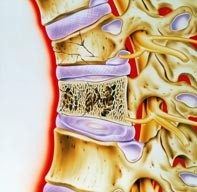Peer Reviewed
Drug update
Denosumab: a new treatment for postmenopausal osteoporosis
Abstract
Denosumab (Prolia) is a promising new first-line agent for the treatment of postmenopausal osteoporosis with proven fracture risk reduction.
Key Points
What is denosumab?
Postmenopausal osteoporosis results from an imbalance between bone resorption and formation, favouring the former. Osteoclastic bone resorption is principally regulated by the interaction of receptor activator of nuclear factor-ΚB ligand (RANKL) and its receptor on osteoclasts and osteoclast precursors. Osteoprotegerin is an endogenous decoy receptor for RANKL. Acting in a similar manner to osteoprotegerin, denosumab (Prolia) is a fully human monoclonal antibody to RANKL that prevents its interaction with osteoclasts and, consequently, reversibly inhibits bone resorption by reducing both osteoclast formation and differentiation, and increasing osteoclast apoptosis.
Purchase the PDF version of this article
Already a subscriber? Login here.

